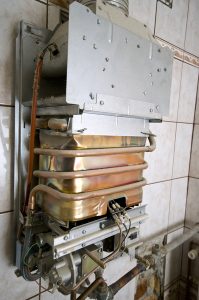 What’s the most common type of home heating system in the U.S.? The natural gas furnace by a wide margin. Gas furnaces produce large amounts of heat and can warm up a house faster than almost any other type of heater. The lower cost of natural gas makes them attractive as well.
What’s the most common type of home heating system in the U.S.? The natural gas furnace by a wide margin. Gas furnaces produce large amounts of heat and can warm up a house faster than almost any other type of heater. The lower cost of natural gas makes them attractive as well.
Gas furnaces aren’t as common in Florida. Their heating power is often too intense for our mild winters, and the lower cost of natural gas often makes little difference when furnaces don’t run often. This makes electric furnaces a frequent alternative. For homeowners without any gas connection, electric furnaces may seem like the only central heating option. They’re not, but they’re still popular choices.
Electric Furnace Basics
We’re going to look closer at electric furnaces, how they work to heat a house, and their advantages and drawbacks.
Electric furnace operation
The general idea behind any furnace is that it heats air and sends it into the house through ductwork. This is also known as forced-air heating. An electric furnace heats with components called heating elements, which convert electricity directly into heat through electrical resistance—similar to the hot wires inside toasters. Most electric furnaces have multiple heating elements, and a device called a sequencer activates them one by one to avoid overload. As the heating elements warm the air, a blower fan turns on to distribute the air into the ventilation system. The thermostat regulates when the furnace powers down.
Electric furnace advantages
Just about any home can use an electric furnace—they’re a flexible choice for central heating. They also cost less to install upfront than gas furnaces and heat pumps, and this is often a factor in Florida homes where the heater isn’t as essential as the air conditioner. They take up less space as well. For homeowners who are concerned about using natural gas, electric furnaces have fewer safety concerns, since they are clean-burning with no emissions.
Electric furnace disadvantages
Heating a home with electrical heat can be costly compared to natural gas. Electric furnaces are also more expensive to run than heat pumps, which only use electricity to move heat rather than convert electricity into heat. For homes without natural gas, heat pumps may end up the less expensive options over their lifetimes because of high efficiency—plus they also work as ACs. Electric furnaces also provide heat slower than gas furnaces.
A few things to keep in mind
Electric furnaces are more common in warm climates like ours, mainly because the higher cost of electricity has less impact on a household budget when the furnace only must contend with a short, mild winter. The cost to operate fluctuates with electrical prices, so we can’t make blanket statements about how much you can expect to pay yearly.
Many of our customers are satisfied with their electric furnaces—but they also worked closely with us to ensure they got the best unit for their needs. You can expect the same assistance when you arrange for a new heating installation in Lake City, FL with our team.
Interested in a new furnace installation? Call Touchstone Heating and Air 24/7 for exceptional customer service!
